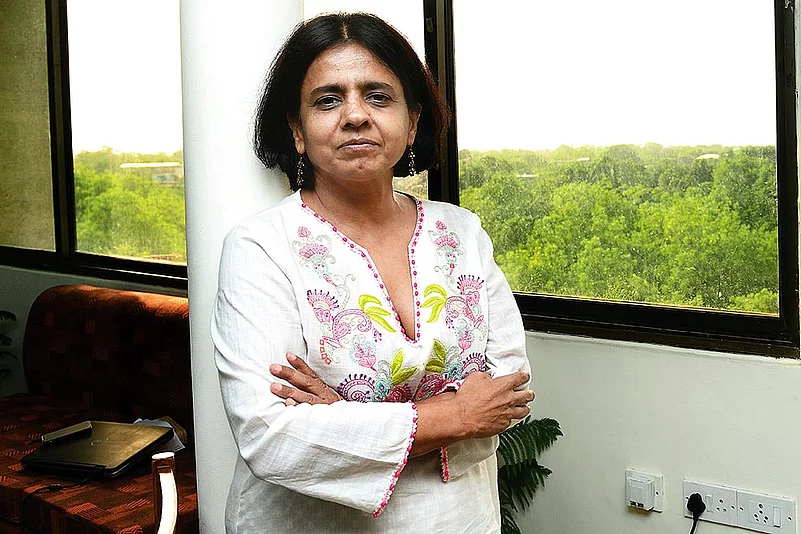Biographies of warriors such as Alexander, Babur, Napoleon make for fascinating reading. Staring with modest resources, they expanded their jurisdictions across diverse lands and people, leaving permanent legacies. A common trait among them was lack of fear, and a passion and love for conflict. The memoirs of environmental activist Sunita Narain, aptly titled Conflicts of Interest: My Journey through India’s Green Movement, reads like the account of one such warrior. She ventured to wage battles against the mighty on diverse issues, including air pollution, use of pesticides and their impact on ground water, climate change and carbon emissions, tiger conservation and managing water and waste.
Initiated into environmental activism at 21 by her employer and mentor Anil Aggrawal, Sunita took on his mantle after his premature demise. She brought to their agenda and work fearlessness and agression that eventually brought her organisation, Centre for Science and Environment (CSE), to the public policy mainstream. Sunita (and CSE) picked her battles well—issues that impacted common people. She took on the mighty: auto leaders like Bajaj and Tatas on air quality; Coke and Pepsi on pesticide residues in ground water; developed countries on climate change; conservationists and luxury resorts on tiger conservation and government agencies on water and waste management. She is unsparing of celebrities too, including superstars who advertised on behalf of cola giants. She uses Al Gore’s terminology, ‘inconvenient truth’, repeatedly in the chapter on climate change to mock the US’ double standards in climate change negotiations.
In each case, she also took on what she calls ‘established science’, opposing leading opinions within the scientific community. This led to her research methodologies, competence, even her motives being questioned. However, environmental activism has in recent years found a great ally in the judiciary and that is how Sunita won many a battle.
Though not focussed like others on mobilising public movements, each battle was waged for the weak and the voiceless, like unsuspecting urban residents breathing toxic air, aerated drinks with low quality standards, developing countries unfairly treated on climate change talks, communities alienated from their ecosystems by Project Tiger and traditional water harvesting practices.
The book is a lucid, detailed account of these battles from inside the ring. Sunita explains how she got drawn to each issue, how established beliefs and vested interests were challenged and the ensuing tribulations of the long-drawn struggle for change. Not all the battles were won and even where points were scored and debates won, desired outcomes have not fully fructified. But, undoubtedly, Sunita and CSE have been and are significant stakeholders in the environment space. They are taken seriously in India and abroad.
The book is a must read for both the lay reader interested in our environmental concerns and those actively involved in public policy and research on environment. Many of us from the latter space have not always agreed with Sunita’s views and her overt agression, but have always been in awe of her courage and exemplary leadership in building up a non-goverment institution without significant government/corporate support. From this arises her independent streak and ability to call a spade a spade. Obsessive warrior that she is, Sunita’s memoirs do not adequately capture the concurrent contributions of other individuals and institutions in taking forward the environment agenda. I guess in the ring, with the lights and media glare, you can barely see others.
Aware that a book on environmental issues could easily be a drab reference book, Sunita includes interesting, dramatic anecdotes. The most interesting chapter is the one on cola wars, perhaps the most contentious of her battles. The details relating to her experience with the parliamentary committee are almost hilarious and surprisingly, she gets a major vindication there. It also became one of the factors leading to the present food safety and standards framework. The chapter on climate change exposes how the US is leading the developed world in imposing unfair restrictions on energy consumption in developing countries.
The last chapter attempts at outlining a blueprint for the future. Inadequate advancement in technology and poor INStitutional framework for implementing agencies and regulatory bodies are seen as factors responsible for our failure to resolve our environmental problems. Informed people will agree. An interesting perspective is that the likes of Uber and Airbnb could be a highly positive disruption for the environment through optimum use of existing resources.

























